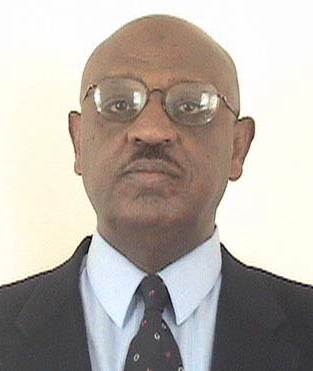 Dr.
Awadelkarim received his Ph. D. from the J. J. Thompson Physical Laboratory
at Reading University, U. K. Prior to joining Penn State, Dr. Awadelkarim
worked as a Senior Research Scientist at Linkoping University and the
Swedish Defense Research Establishment. His research interests are in
nanotechnology, nanoelectronics, nanoelectromechanical systems (NEMS), and
related nanomaterials. Dr. Awadelkarim has authored/coauthored over 200
articles in journals, books, chapters in books, and conference proceedings.
In 2006 Dr. Awadelkarim was selected by the U. S. National Academy of
Sciences as a Jefferson Science Fellow at the United States Department of
State. He was also the recipient of Fellowships from the International
Seminars in Physics and Chemistry (Sweden) and the International Center for
Theoretical Physics (Italy). Dr Awadelkarim¡¯s service to industry and the U.
S. governmental departments and agencies included: membership of the
Electronic Power Research Institute (EPRI)/Defense Advanced Research
Projects Agency (DARPA) sponsored ¡°Industry-University Team for Flat
Panel Display Technologies¡±; membership of ¡°DARPA Technical Team on
High Definition Systems¡±; membership of ¡°SEMATECH¡¯s Gate Stack
Engineering Working Group¡±; representation of the U. S. Department of
State in the ¡°Sub-committee in Nanoscale Science, Engineering and
Technology (NSET)¡±; and several participations in the U. S. Government
Interagency meetings for Science and Technology agreements with countries in
Africa and the Middle East.
Dr.
Awadelkarim received his Ph. D. from the J. J. Thompson Physical Laboratory
at Reading University, U. K. Prior to joining Penn State, Dr. Awadelkarim
worked as a Senior Research Scientist at Linkoping University and the
Swedish Defense Research Establishment. His research interests are in
nanotechnology, nanoelectronics, nanoelectromechanical systems (NEMS), and
related nanomaterials. Dr. Awadelkarim has authored/coauthored over 200
articles in journals, books, chapters in books, and conference proceedings.
In 2006 Dr. Awadelkarim was selected by the U. S. National Academy of
Sciences as a Jefferson Science Fellow at the United States Department of
State. He was also the recipient of Fellowships from the International
Seminars in Physics and Chemistry (Sweden) and the International Center for
Theoretical Physics (Italy). Dr Awadelkarim¡¯s service to industry and the U.
S. governmental departments and agencies included: membership of the
Electronic Power Research Institute (EPRI)/Defense Advanced Research
Projects Agency (DARPA) sponsored ¡°Industry-University Team for Flat
Panel Display Technologies¡±; membership of ¡°DARPA Technical Team on
High Definition Systems¡±; membership of ¡°SEMATECH¡¯s Gate Stack
Engineering Working Group¡±; representation of the U. S. Department of
State in the ¡°Sub-committee in Nanoscale Science, Engineering and
Technology (NSET)¡±; and several participations in the U. S. Government
Interagency meetings for Science and Technology agreements with countries in
Africa and the Middle East.
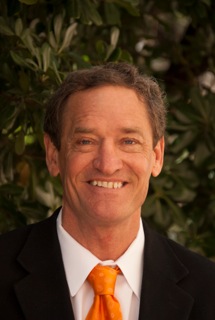 Professor
Joseph J. Beaman¡¯s career work has been in design, manufacturing and
control. His specific manufacturing research interest is in Solid Freeform
Fabrication, a manufacturing technology that produces freeform solid objects
directly from a computer model of the object without part-specific tooling
or knowledge. Dr. Beaman coined this term in 1987. Professor Beaman
initiated research in the area in 1985 and was the first academic researcher
in the field. One of the most successful Solid Freeform Fabrication
approaches, Selective Laser Sintering, was a process that was developed in
his laboratory. In particular, he has worked with graduate students,
faculty, and industrial concerns on the fundamental technology that span
materials, laser scanning techniques, thermal control, mold making
techniques, direct metal fabrication, and biomedical applications. Besides
his work in Solid Freeform Fabrication, Professor Beaman has worked
extensively with the special metals processing industry to develop next
generation process control for remelting processes that are used to produce
special metals alloys such as super alloys and titanium alloys. Professor
Beaman has pioneered the use of high fidelity physics-based models in
real-time manufacturing process control in order to estimate and control
important outputs in these remelting processes. In many cases, it would not
have been possible to estimate and control these outputs without detailed
models of the processes.
Professor
Joseph J. Beaman¡¯s career work has been in design, manufacturing and
control. His specific manufacturing research interest is in Solid Freeform
Fabrication, a manufacturing technology that produces freeform solid objects
directly from a computer model of the object without part-specific tooling
or knowledge. Dr. Beaman coined this term in 1987. Professor Beaman
initiated research in the area in 1985 and was the first academic researcher
in the field. One of the most successful Solid Freeform Fabrication
approaches, Selective Laser Sintering, was a process that was developed in
his laboratory. In particular, he has worked with graduate students,
faculty, and industrial concerns on the fundamental technology that span
materials, laser scanning techniques, thermal control, mold making
techniques, direct metal fabrication, and biomedical applications. Besides
his work in Solid Freeform Fabrication, Professor Beaman has worked
extensively with the special metals processing industry to develop next
generation process control for remelting processes that are used to produce
special metals alloys such as super alloys and titanium alloys. Professor
Beaman has pioneered the use of high fidelity physics-based models in
real-time manufacturing process control in order to estimate and control
important outputs in these remelting processes. In many cases, it would not
have been possible to estimate and control these outputs without detailed
models of the processes.
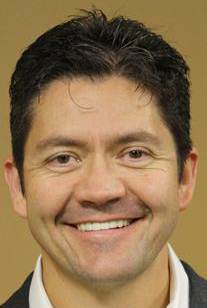 Dr.
Church is the founder of Sciperio Inc., a research company for advanced
innovation. Sciperio has worked and developed in a wide range of technical
areas to include electronics, antennas, tissue engineering, water and
sensors. Funding for these efforts have come from a variety of private and
government entities. Technologies and companies have spun out of Sciperio
which include nScrypt (a capital equipment company) and VaxDesign (a rapid
vaccine test company). In addition to working with Sciperio he is on the
board of directors for nScrypt and 3D Monolithix (an electronic device
company). He is a Trustee for the 1213 Charitable Trust (non-profit
organization for disadvantaged children) and he serves as co-director of the
Structural and Printed Electronic Center within the W.M. Keck Center for 3D
innovation at University of Texas El Paso. His research interests have been
broad and have reached into lasers, optics, and the various ways in which
they interact with different materials, various water technologies, novel
antenna designs and optimization, novel and conformal electronic devices and
processes, and tissue engineered materials and processes. Dr. Church has
managed numerous R&D projects funded by the Defense Advanced Research
Projects Agency (DARPA), the National Science Foundation (NSF), the U.S. Air
Force, the U.S. Navy, the U.S. Army, the Department of Justice, Missile
Defense Agency (MDA), OCAST, National Institutes of Health (NIH) and various
private institutions. Dr. Church earned a BS in both Physics and Electrical
Engineering from Oklahoma Christian University of Science and Arts and an
M.S. and Ph.D. in Electrical Engineering from Oklahoma State University.
Dr.
Church is the founder of Sciperio Inc., a research company for advanced
innovation. Sciperio has worked and developed in a wide range of technical
areas to include electronics, antennas, tissue engineering, water and
sensors. Funding for these efforts have come from a variety of private and
government entities. Technologies and companies have spun out of Sciperio
which include nScrypt (a capital equipment company) and VaxDesign (a rapid
vaccine test company). In addition to working with Sciperio he is on the
board of directors for nScrypt and 3D Monolithix (an electronic device
company). He is a Trustee for the 1213 Charitable Trust (non-profit
organization for disadvantaged children) and he serves as co-director of the
Structural and Printed Electronic Center within the W.M. Keck Center for 3D
innovation at University of Texas El Paso. His research interests have been
broad and have reached into lasers, optics, and the various ways in which
they interact with different materials, various water technologies, novel
antenna designs and optimization, novel and conformal electronic devices and
processes, and tissue engineered materials and processes. Dr. Church has
managed numerous R&D projects funded by the Defense Advanced Research
Projects Agency (DARPA), the National Science Foundation (NSF), the U.S. Air
Force, the U.S. Navy, the U.S. Army, the Department of Justice, Missile
Defense Agency (MDA), OCAST, National Institutes of Health (NIH) and various
private institutions. Dr. Church earned a BS in both Physics and Electrical
Engineering from Oklahoma Christian University of Science and Arts and an
M.S. and Ph.D. in Electrical Engineering from Oklahoma State University.
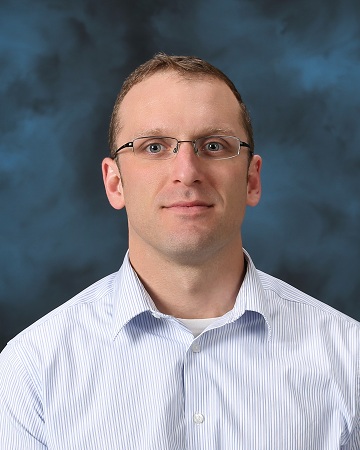 Dr.
Ryan Dehoff graduated from The Ohio State University with a Ph.D. in
Materials Science and Engineering in 2008. He is currently the Thrust Lead
for Metal Additive Manufacturing, at Oak Ridge National Laboratory. Dr.
Dehoff facilitates the development of additive manufacturing of components,
utilizing various techniques including electron beam melting, laser metal
deposition and ultrasonic additive manufacturing. He is developing
processing techniques and exploring new materials via additive manufacturing
to improve energy efficiency during component production, decrease material
waste, and improve material performance.
Dr.
Ryan Dehoff graduated from The Ohio State University with a Ph.D. in
Materials Science and Engineering in 2008. He is currently the Thrust Lead
for Metal Additive Manufacturing, at Oak Ridge National Laboratory. Dr.
Dehoff facilitates the development of additive manufacturing of components,
utilizing various techniques including electron beam melting, laser metal
deposition and ultrasonic additive manufacturing. He is developing
processing techniques and exploring new materials via additive manufacturing
to improve energy efficiency during component production, decrease material
waste, and improve material performance.
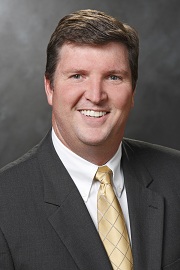 Bryan
joined GE Power & Water in July 2008 to establish the Manufacturing
Engineering Technology organization. Manufacturing Engineering Technology is
responsible for new product and technology introduction across the Global
Supply Chain¡¯s factory and supplier network. Bryan has 25 years of
manufacturing experience in various quality assurance, production
management, and technology development roles. Prior to joining GE, he spent
21 years in the aerospace industry with McDonnell Douglas and The Boeing
Company. He has been active in re-establishing manufacturing as a
competitive advantage through participation with industry consortiums,
government agencies, research institutes and universities. Bryan is building
the Manufacturing Engineering Technology organization using a distributed
manufacturing technology center operating model to capitalize on the best of
GE¡¯s internal resources and leverage partnerships with global experts. Bryan
holds a B.S. degree in Metallurgy, Mechanics, & Materials Science from
Michigan State University, a M.S. degree in Materials Engineering from
Washington University in St. Louis, and a M.B.A. degree from Washington
University in St. Louis.
Bryan
joined GE Power & Water in July 2008 to establish the Manufacturing
Engineering Technology organization. Manufacturing Engineering Technology is
responsible for new product and technology introduction across the Global
Supply Chain¡¯s factory and supplier network. Bryan has 25 years of
manufacturing experience in various quality assurance, production
management, and technology development roles. Prior to joining GE, he spent
21 years in the aerospace industry with McDonnell Douglas and The Boeing
Company. He has been active in re-establishing manufacturing as a
competitive advantage through participation with industry consortiums,
government agencies, research institutes and universities. Bryan is building
the Manufacturing Engineering Technology organization using a distributed
manufacturing technology center operating model to capitalize on the best of
GE¡¯s internal resources and leverage partnerships with global experts. Bryan
holds a B.S. degree in Metallurgy, Mechanics, & Materials Science from
Michigan State University, a M.S. degree in Materials Engineering from
Washington University in St. Louis, and a M.B.A. degree from Washington
University in St. Louis.
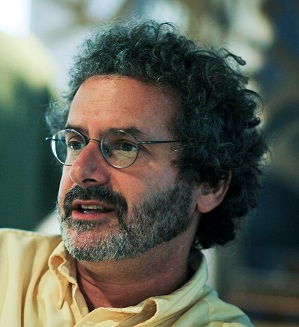 Prof.
Neil Gershenfeld is the Director of MIT's Center for Bits and Atoms. His
unique laboratory is breaking down boundaries between the digital and
physical worlds, from creating molecular quantum computers to virtuosic
musical instruments. Technology from his lab has been seen and used in
settings including New York's Museum of Modern Art and rural Indian
villages, the White House and the World Economic Forum, inner-city community
centers and automobile safety systems, Las Vegas shows and Sami herds. He is
the author of numerous technical publications, patents, and books including
Fab, When Things Start To Think, The Nature of Mathematical Modeling, and
The Physics of Information Technology, and has been featured in media such
as The New York Times, The Economist, and the McNeil/Lehrer News Hour. He is
a Fellow of the American Physical Society, has been named one of Scientific
American's 50 leaders in science and technology, as one of 40 Modern-Day Leonardos by the Museum of Science and Industry, has been selected as a
CNN/Time/Fortune Principal Voice, and by Prospect/Foreign Policy as one of
the top 100 public intellectuals. Dr. Gershenfeld has a BA in Physics with
High Honors from Swarthmore College, a Ph.D. in Applied Physics from Cornell
University, honorary doctorates from Swarthmore College and Strathclyde
University, was a Junior Fellow of the Harvard University Society of
Fellows, and a member of the research staff at Bell Labs.
Prof.
Neil Gershenfeld is the Director of MIT's Center for Bits and Atoms. His
unique laboratory is breaking down boundaries between the digital and
physical worlds, from creating molecular quantum computers to virtuosic
musical instruments. Technology from his lab has been seen and used in
settings including New York's Museum of Modern Art and rural Indian
villages, the White House and the World Economic Forum, inner-city community
centers and automobile safety systems, Las Vegas shows and Sami herds. He is
the author of numerous technical publications, patents, and books including
Fab, When Things Start To Think, The Nature of Mathematical Modeling, and
The Physics of Information Technology, and has been featured in media such
as The New York Times, The Economist, and the McNeil/Lehrer News Hour. He is
a Fellow of the American Physical Society, has been named one of Scientific
American's 50 leaders in science and technology, as one of 40 Modern-Day Leonardos by the Museum of Science and Industry, has been selected as a
CNN/Time/Fortune Principal Voice, and by Prospect/Foreign Policy as one of
the top 100 public intellectuals. Dr. Gershenfeld has a BA in Physics with
High Honors from Swarthmore College, a Ph.D. in Applied Physics from Cornell
University, honorary doctorates from Swarthmore College and Strathclyde
University, was a Junior Fellow of the Harvard University Society of
Fellows, and a member of the research staff at Bell Labs.
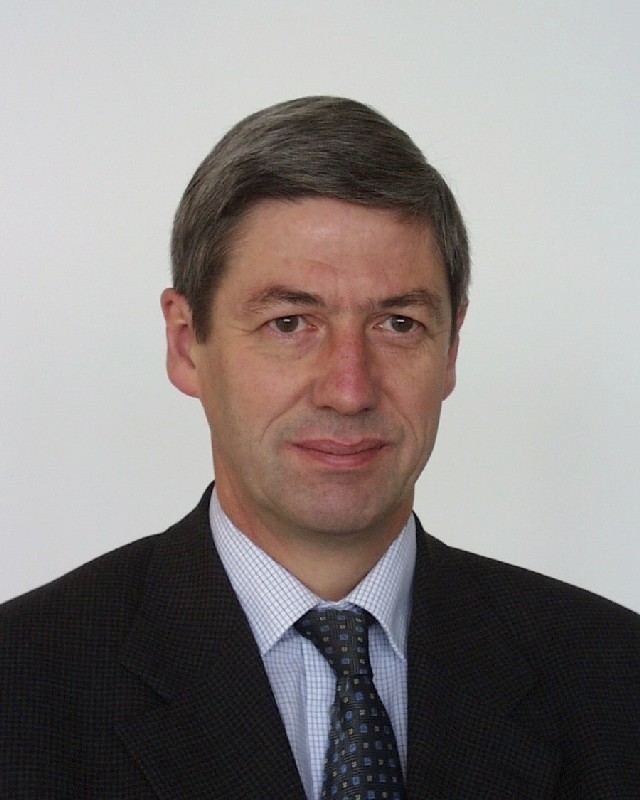 Prof.
Dr. Ir. Jean-Pierre Kruth is full professor at the Catholic University of
Leuven (KU Leuven, Belgium), where he is responsible for Production
Engineering research and education at the M.E. Department (Recipient of the
1998 CASA/SME University LEAD Award). His activities involves: CAD/CAPP/CAM,
production processes, metal cutting, sheet metal manufacturing,
non-traditional machining (EDM and laser machining), rapid prototyping and
manufacturing, reverse engineering, dimensional metrology and quality
control. After obtaining his PhD in 1979, he worked at the Institut
Technologi Bandung (ITB, Indonesia, 1979-1982). He was research engineer at
the Scientific and Technical Center of the Belgian Metalworking Industry (CRIF/WTCM/Sirris)
and half-time consulting engineer at the national ¡®CAD/CAM Stand-By¡¯ service
for industry (IWONL), till being nominate full-time professor at KU Leuven
in 1987.He is, among others, Fellow of CIRP (International Academy for
Production Engineering), Fellow of SME (Society of Manufacturing Engineers,
Dearborn, USA), Honorary member Romanian Society of Mech. Eng., Member IMEKO/BEMEKO
(International/Belgian Measuring Confederation). He is founding board member
of several companies involved in RP and AM, including Materialise
(1990-1997), Metris (1995-2009, now Nikon Metrology) and LayerWise
(2008-today). He has been awarded among others the F.W. Taylor Medal (CIRP)
and the Knight of the Laser Technology award (Erlangen, Germany), the
Industrial and Academic Career Award in Virtual and Rapid Prototyping (Leiria,
Portugal), the International Freeform and Additive Manufacturing Excellence
(FAME) Award (Austin, USA).
Prof.
Dr. Ir. Jean-Pierre Kruth is full professor at the Catholic University of
Leuven (KU Leuven, Belgium), where he is responsible for Production
Engineering research and education at the M.E. Department (Recipient of the
1998 CASA/SME University LEAD Award). His activities involves: CAD/CAPP/CAM,
production processes, metal cutting, sheet metal manufacturing,
non-traditional machining (EDM and laser machining), rapid prototyping and
manufacturing, reverse engineering, dimensional metrology and quality
control. After obtaining his PhD in 1979, he worked at the Institut
Technologi Bandung (ITB, Indonesia, 1979-1982). He was research engineer at
the Scientific and Technical Center of the Belgian Metalworking Industry (CRIF/WTCM/Sirris)
and half-time consulting engineer at the national ¡®CAD/CAM Stand-By¡¯ service
for industry (IWONL), till being nominate full-time professor at KU Leuven
in 1987.He is, among others, Fellow of CIRP (International Academy for
Production Engineering), Fellow of SME (Society of Manufacturing Engineers,
Dearborn, USA), Honorary member Romanian Society of Mech. Eng., Member IMEKO/BEMEKO
(International/Belgian Measuring Confederation). He is founding board member
of several companies involved in RP and AM, including Materialise
(1990-1997), Metris (1995-2009, now Nikon Metrology) and LayerWise
(2008-today). He has been awarded among others the F.W. Taylor Medal (CIRP)
and the Knight of the Laser Technology award (Erlangen, Germany), the
Industrial and Academic Career Award in Virtual and Rapid Prototyping (Leiria,
Portugal), the International Freeform and Additive Manufacturing Excellence
(FAME) Award (Austin, USA).
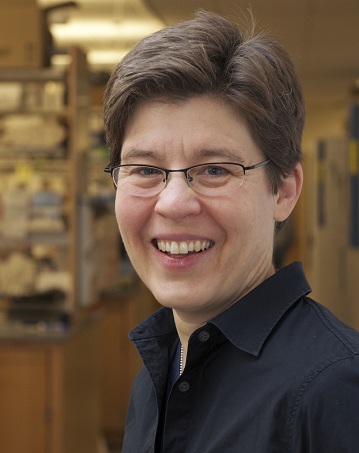 Jennifer
A. Lewis joined the faculty of the School of Engineering and Applied
Sciences and the Wyss Institute for Biologically Inspired Engineering at
Harvard University in January 2013. Prior to her appointment at Harvard, she
served as the Hans Thurnauer Professor of Materials Science and Engineering
and the Director of the Frederick Seitz Materials Research Laboratory at the
University of Illinois at Urbana-Champaign. Her research group focuses on
the directed assembly of soft functional materials. Her work has resulted in
more than 120 papers and 15 patents. She recently co-founded Electroninks
Incorporated, a startup company focused on commercializing conductive inks
for the printed electronics and DIY/maker communities. Lewis is the
recipient of the NSF Presidential Faculty Fellow Award (1994), the Brunaeur
Award from the American Ceramic Society (2003), and the Langmuir Lecture
Award from the American Chemical Society (2009), and the MRS Medal Award
(2012). She is a Fellow of the American Ceramic Society (2005), the American
Physical Society (2007), the Materials Research Society (2011), and the
American Academy of Arts and Sciences (2012). She serves on the Editorial
Advisory Boards of Soft Matter and Advanced Functional Materials.
Jennifer
A. Lewis joined the faculty of the School of Engineering and Applied
Sciences and the Wyss Institute for Biologically Inspired Engineering at
Harvard University in January 2013. Prior to her appointment at Harvard, she
served as the Hans Thurnauer Professor of Materials Science and Engineering
and the Director of the Frederick Seitz Materials Research Laboratory at the
University of Illinois at Urbana-Champaign. Her research group focuses on
the directed assembly of soft functional materials. Her work has resulted in
more than 120 papers and 15 patents. She recently co-founded Electroninks
Incorporated, a startup company focused on commercializing conductive inks
for the printed electronics and DIY/maker communities. Lewis is the
recipient of the NSF Presidential Faculty Fellow Award (1994), the Brunaeur
Award from the American Ceramic Society (2003), and the Langmuir Lecture
Award from the American Chemical Society (2009), and the MRS Medal Award
(2012). She is a Fellow of the American Ceramic Society (2005), the American
Physical Society (2007), the Materials Research Society (2011), and the
American Academy of Arts and Sciences (2012). She serves on the Editorial
Advisory Boards of Soft Matter and Advanced Functional Materials.
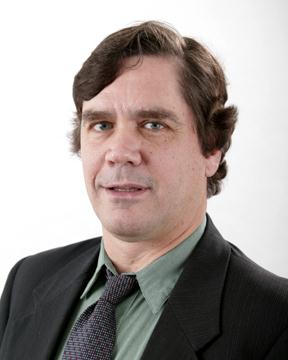 Before
joining UCI as the Chancellor¡¯s Professor in Mechanical and Aerospace
Engineering (MEA), Dr. Madou was Vice President of Advanced Technology at
Nanogen in San Diego, California. He specializes in the application of
miniaturization technology to chemical and biological problems (BIO-MEMS).
He is the author of several books in this burgeoning field he helped pioneer
both in Academia and in Industry. He founded several micromachining
companies and has been on the board of many more. Many of his colleagues
became well known in their own right in academia and through successful MEMS
start-ups. Madou was the founder of the SRI International¡¯s Microsensor
Department, founder and President of Teknekron Sensor Development
Corporation (TSDC), Visiting Miller Professor at UC Berkeley and Endowed
Chair at the Ohio State University (Professor in Chemistry and Materials
Science and Engineering). The third edition of ¡°Fundamentals of
Microfabrication,¡± an introduction to MEMS and NEMS, which has become known
as the ¡°bible¡± of micromachining, was published in July of last year
(http://fundamentalsofmicrofabrication.wordpress.com/). Dr. Madou currently
leads UCI¡¯s efforts in Advanced Manufacturing and in Educational Outreach in
Advanced Manufacturing. Some of Dr. Madou¡¯s recent research work involves
artificial muscle for responsive drug delivery, a compact disc-based fluidic
platform and carbon MEMS, the two latter fields were pioneered by Dr. Madou.
To find out more about those recent research projects, visit www.biomems.net.
At UCI (USA) and UNIST (South Korea), Dr. Madou works on carbon-MEMS, a CD
based fluidic platform, artificial muscle for responsive drug delivery and
integrating fluidics with DNA arrays as well as researching label¨Cfree
assays for the Molecular Diagnostics platform of the future.
Before
joining UCI as the Chancellor¡¯s Professor in Mechanical and Aerospace
Engineering (MEA), Dr. Madou was Vice President of Advanced Technology at
Nanogen in San Diego, California. He specializes in the application of
miniaturization technology to chemical and biological problems (BIO-MEMS).
He is the author of several books in this burgeoning field he helped pioneer
both in Academia and in Industry. He founded several micromachining
companies and has been on the board of many more. Many of his colleagues
became well known in their own right in academia and through successful MEMS
start-ups. Madou was the founder of the SRI International¡¯s Microsensor
Department, founder and President of Teknekron Sensor Development
Corporation (TSDC), Visiting Miller Professor at UC Berkeley and Endowed
Chair at the Ohio State University (Professor in Chemistry and Materials
Science and Engineering). The third edition of ¡°Fundamentals of
Microfabrication,¡± an introduction to MEMS and NEMS, which has become known
as the ¡°bible¡± of micromachining, was published in July of last year
(http://fundamentalsofmicrofabrication.wordpress.com/). Dr. Madou currently
leads UCI¡¯s efforts in Advanced Manufacturing and in Educational Outreach in
Advanced Manufacturing. Some of Dr. Madou¡¯s recent research work involves
artificial muscle for responsive drug delivery, a compact disc-based fluidic
platform and carbon MEMS, the two latter fields were pioneered by Dr. Madou.
To find out more about those recent research projects, visit www.biomems.net.
At UCI (USA) and UNIST (South Korea), Dr. Madou works on carbon-MEMS, a CD
based fluidic platform, artificial muscle for responsive drug delivery and
integrating fluidics with DNA arrays as well as researching label¨Cfree
assays for the Molecular Diagnostics platform of the future.
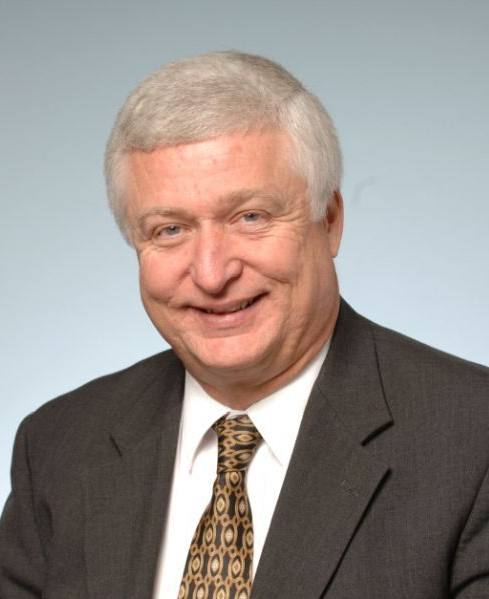 Ed
Morris is Vice President of the National Center for Defense Manufacturing
and Machining (NCDMM) and Director of the National Additive Manufacturing
Innovation Institute (NAMII). Under Ed¡¯s leadership, NAMII is focused on
accelerating the adoption of additive manufacturing design and production
technologies in the U.S. by bridging the gap between basic research and
technology development/deployment. NAMII is the pilot institute under the
National Network for Manufacturing Innovation (NNMI). Previously Mr. Morris
was the Director of Mechanical Engineering & Manufacturing on the Lockheed
Martin Corporate Engineering & Technology team. Reporting to the Vice
President of Engineering, he worked with the Business Areas to develop and
maintain the mechanical engineering skill set and tools necessary to
efficiently design and manufacture Lockheed Martin¡¯s portfolio of products.
Mr. Morris is an active member of the National Defense Industrial
Association¡¯s Manufacturing Division and Executive Committee, having served
three two-year terms as the Division Chairman. He represents industry on the
DoD ManTech Program Strategic Planning Working Group and the Joint Defense
Manufacturing Technology Panel¡¯s Electronics Subpanel and Advanced
Manufacturing Engineering Subpanel. He is also member of the National
Academies¡¯ National Materials and Manufacturing Board. Prior national
leadership activities include membership in the Aerospace Industries
Association¡¯s Engineering Management Committee and the joint
industry/government Pb-free Electronics Risk Management Consortium Steering
Committee. He has served as a member of the Industrial Advisory Boards for
the Navy Electronics Manufacturing Productivity Facility, the Center for
Advanced Life Cycle Engineering Electronic Products and Systems Consortium
at the University of Maryland, the National Science Foundation Center for
Advanced Vehicle and Extreme Environment Electronics at Auburn University,
and the National Science Foundation Industry/University Cooperative Research
Center for Lasers and Plasmas. Mr. Morris has a Bachelor of Science in
Aeronautical Engineering from Purdue University and an MBA from the
University of Texas at Arlington. He has more than 40 years of defense,
commercial and international aerospace industry experience with emphasis on
program management, engineering, procurement, and manufacturing. Mr. Morris
is a nationally recognized leader in advanced manufacturing technology.
Ed
Morris is Vice President of the National Center for Defense Manufacturing
and Machining (NCDMM) and Director of the National Additive Manufacturing
Innovation Institute (NAMII). Under Ed¡¯s leadership, NAMII is focused on
accelerating the adoption of additive manufacturing design and production
technologies in the U.S. by bridging the gap between basic research and
technology development/deployment. NAMII is the pilot institute under the
National Network for Manufacturing Innovation (NNMI). Previously Mr. Morris
was the Director of Mechanical Engineering & Manufacturing on the Lockheed
Martin Corporate Engineering & Technology team. Reporting to the Vice
President of Engineering, he worked with the Business Areas to develop and
maintain the mechanical engineering skill set and tools necessary to
efficiently design and manufacture Lockheed Martin¡¯s portfolio of products.
Mr. Morris is an active member of the National Defense Industrial
Association¡¯s Manufacturing Division and Executive Committee, having served
three two-year terms as the Division Chairman. He represents industry on the
DoD ManTech Program Strategic Planning Working Group and the Joint Defense
Manufacturing Technology Panel¡¯s Electronics Subpanel and Advanced
Manufacturing Engineering Subpanel. He is also member of the National
Academies¡¯ National Materials and Manufacturing Board. Prior national
leadership activities include membership in the Aerospace Industries
Association¡¯s Engineering Management Committee and the joint
industry/government Pb-free Electronics Risk Management Consortium Steering
Committee. He has served as a member of the Industrial Advisory Boards for
the Navy Electronics Manufacturing Productivity Facility, the Center for
Advanced Life Cycle Engineering Electronic Products and Systems Consortium
at the University of Maryland, the National Science Foundation Center for
Advanced Vehicle and Extreme Environment Electronics at Auburn University,
and the National Science Foundation Industry/University Cooperative Research
Center for Lasers and Plasmas. Mr. Morris has a Bachelor of Science in
Aeronautical Engineering from Purdue University and an MBA from the
University of Texas at Arlington. He has more than 40 years of defense,
commercial and international aerospace industry experience with emphasis on
program management, engineering, procurement, and manufacturing. Mr. Morris
is a nationally recognized leader in advanced manufacturing technology.
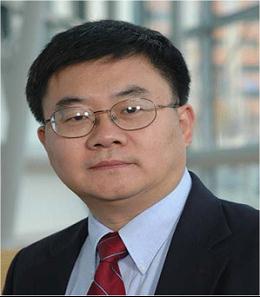 Dr.
Wei Sun is appointed Albert Soffa Chair Professor of Mechanical Engineering,
Drexel University and 1000plan Chair Professor and Director of
Biomanufacturing Engineering Research Institute, Tsinghua University,
Beijing, China. His research interest has been on Biofabrication,
Computer-Aided Tissue Engineering, CAD/CAM and Additive Manufacturing. Dr.
Sun is also an elected President for International Society of Biofabrication
and Editor-in-Chief for journal Biofabrication.
Dr.
Wei Sun is appointed Albert Soffa Chair Professor of Mechanical Engineering,
Drexel University and 1000plan Chair Professor and Director of
Biomanufacturing Engineering Research Institute, Tsinghua University,
Beijing, China. His research interest has been on Biofabrication,
Computer-Aided Tissue Engineering, CAD/CAM and Additive Manufacturing. Dr.
Sun is also an elected President for International Society of Biofabrication
and Editor-in-Chief for journal Biofabrication.
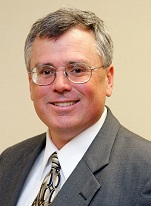 Ryan
Wicker, Ph.D., P.E., is a Professor of Mechanical Engineering and Director
of the W.M. Keck Center for 3D Innovation (Keck Center) at the University of
Texas at El Paso (UTEP) where he also holds the endowed Mr. and Mrs.
MacIntosh Murchison Chair I in Engineering. Ryan received degrees in
mechanical engineering (B.S. from UT Austin and M.S. and Ph.D. from Stanford
University) and has spent his entire academic career at UTEP. In 2000, Ryan
founded the Keck Center, a truly unique, multi-disciplinary facility that
provides unparalleled experiences for its students. The Center¡¯s additive
manufacturing capabilities have grown from 1 machine in 2000 to over 40
machines today, and these technologies are being used to fabricate 3D
objects that are plastic, metal, ceramic, of bio-compatible materials,
composite materials, or that contain electronics.
Ryan
Wicker, Ph.D., P.E., is a Professor of Mechanical Engineering and Director
of the W.M. Keck Center for 3D Innovation (Keck Center) at the University of
Texas at El Paso (UTEP) where he also holds the endowed Mr. and Mrs.
MacIntosh Murchison Chair I in Engineering. Ryan received degrees in
mechanical engineering (B.S. from UT Austin and M.S. and Ph.D. from Stanford
University) and has spent his entire academic career at UTEP. In 2000, Ryan
founded the Keck Center, a truly unique, multi-disciplinary facility that
provides unparalleled experiences for its students. The Center¡¯s additive
manufacturing capabilities have grown from 1 machine in 2000 to over 40
machines today, and these technologies are being used to fabricate 3D
objects that are plastic, metal, ceramic, of bio-compatible materials,
composite materials, or that contain electronics.
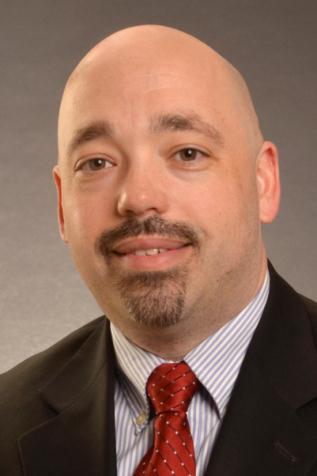 Dr.
Darrell Wallace received his B.S. in mechanical engineering from The Ohio
State University. Working at a local steel processor to support himself
through his undergraduate education, Dr. Wallace began a lifelong career in
manufacturing. Subsequently, Dr. Wallace worked with OSU's Engineering
Research Center for Net Shape Manufacturing (ERC/NSM) as a staff engineer.
In affiliation with that research center, he completed his master's degree
in mechanical engineering with emphasis on manufacturing processes. Dr.
Wallace continued his work at Ohio State with a Ph.D. in industrial
engineering that focused on the safety issues associated with operating
press equipment and minors in engineering education and cognitive
engineering. Dr. Wallace has served as a lecturer in the Department of
Industrial Engineering at The Ohio State University, an adjunct professor at
Columbus State University, and currently is an Associate Professor in the
Department of Mechanical and Industrial Engineering at Youngstown State
University. Throughout his academic career, Dr. Wallace has also worked
extensively with industry both through industry-partnered academic research
and outside consulting activities. His partners and clients range from
startups to Global Fortune 50 companies. Dr. Wallace currently serves on the
advisory boards of several manufacturing companies across the state of Ohio.
As the founding Director for Workforce and Educational Outreach for YSU and
the Acting Deputy director for Workforce and Educational Outreach for the
National Additive Manufacturing Innovation Institute (NAMII), Dr. Wallace is
able to merge his experience in industry, academia, and pedagogy to address
the evolving training and education needs in the manufacturing industry.
Effective June 1, 2013, he will be assuming the NAMII Deputy Director role
on a full-time basis, focusing his attention on the transformative
implications of Additive Manufacturing for workforce development and
education.
Dr.
Darrell Wallace received his B.S. in mechanical engineering from The Ohio
State University. Working at a local steel processor to support himself
through his undergraduate education, Dr. Wallace began a lifelong career in
manufacturing. Subsequently, Dr. Wallace worked with OSU's Engineering
Research Center for Net Shape Manufacturing (ERC/NSM) as a staff engineer.
In affiliation with that research center, he completed his master's degree
in mechanical engineering with emphasis on manufacturing processes. Dr.
Wallace continued his work at Ohio State with a Ph.D. in industrial
engineering that focused on the safety issues associated with operating
press equipment and minors in engineering education and cognitive
engineering. Dr. Wallace has served as a lecturer in the Department of
Industrial Engineering at The Ohio State University, an adjunct professor at
Columbus State University, and currently is an Associate Professor in the
Department of Mechanical and Industrial Engineering at Youngstown State
University. Throughout his academic career, Dr. Wallace has also worked
extensively with industry both through industry-partnered academic research
and outside consulting activities. His partners and clients range from
startups to Global Fortune 50 companies. Dr. Wallace currently serves on the
advisory boards of several manufacturing companies across the state of Ohio.
As the founding Director for Workforce and Educational Outreach for YSU and
the Acting Deputy director for Workforce and Educational Outreach for the
National Additive Manufacturing Innovation Institute (NAMII), Dr. Wallace is
able to merge his experience in industry, academia, and pedagogy to address
the evolving training and education needs in the manufacturing industry.
Effective June 1, 2013, he will be assuming the NAMII Deputy Director role
on a full-time basis, focusing his attention on the transformative
implications of Additive Manufacturing for workforce development and
education.